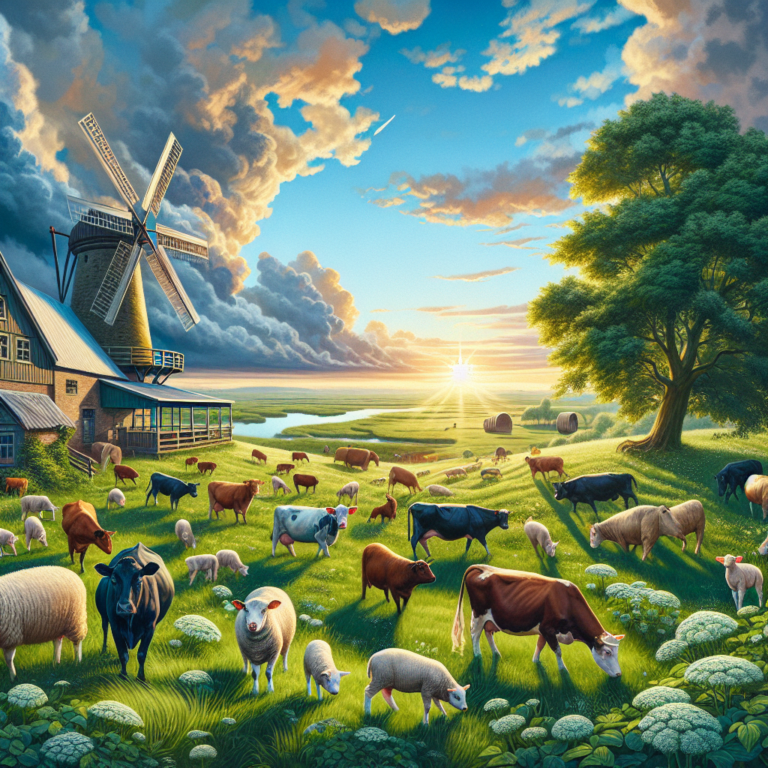As the conversation around sustainability and ethical farming practices continues to grow, more consumers are turning to free-range livestock as their preferred choice of meat. Free-range livestock refers to animals that are raised in an environment where they have the ability to roam freely and interact with their natural surroundings. This results in healthier, happier animals that produce higher quality meat, while also benefiting the environment in numerous ways.
One of the key reasons why free-range livestock is considered a sustainable choice is because it helps reduce the environmental impact of conventional factory farming practices. In factory farms, animals are often kept in overcrowded and unsanitary conditions, resulting in high levels of pollution and waste. These farms also require large amounts of resources, such as water and feed, to sustain the animals. In contrast, free-range livestock are able to graze on pastures and consume natural vegetation, reducing the need for additional resources and minimizing the environmental footprint of the farm.
Furthermore, free-range livestock play a crucial role in promoting biodiversity and preserving natural habitats. By allowing animals to roam freely, farmers are able to mimic natural ecosystems and create a more diverse and sustainable environment. This benefits not only the animals themselves, but also the surrounding plants and wildlife that rely on a healthy ecosystem to thrive.
In addition, free-range livestock are typically raised without the use of antibiotics or hormones. This not only benefits the health of the animals, but also reduces the risk of antibiotic resistance in humans. As consumers become more aware of the potential dangers of consuming meat from animals treated with antibiotics, the demand for antibiotic-free meat continues to grow. By choosing free-range livestock, consumers can be confident that they are supporting farms that prioritize the health and well-being of their animals.
Overall, the choice to support free-range livestock is a sustainable one that benefits both animals and the environment. By opting for meat from free-range farms, consumers can help protect natural habitats, promote biodiversity, and reduce the environmental impact of conventional farming practices. Additionally, by supporting ethical and sustainable farming practices, consumers can feel good about the choices they are making for their health, the environment, and the well-being of animals.
